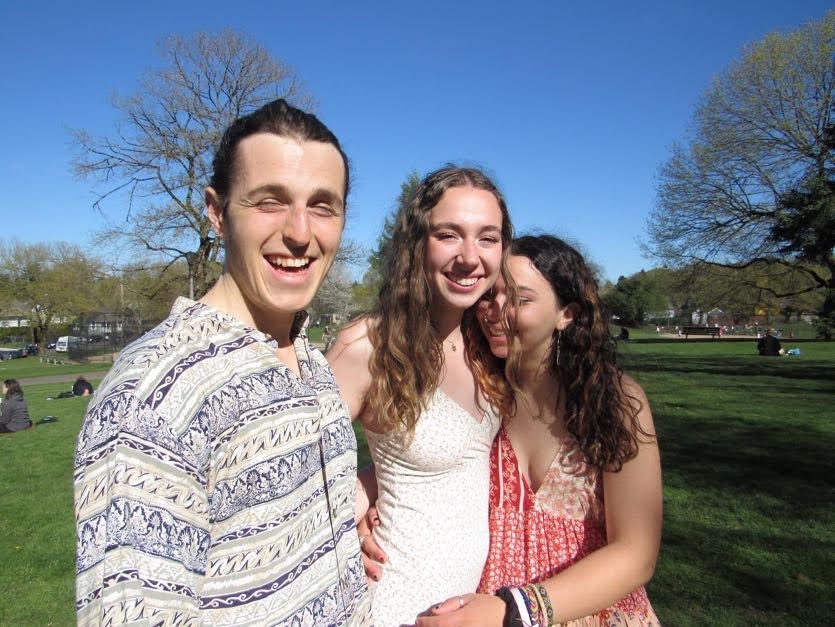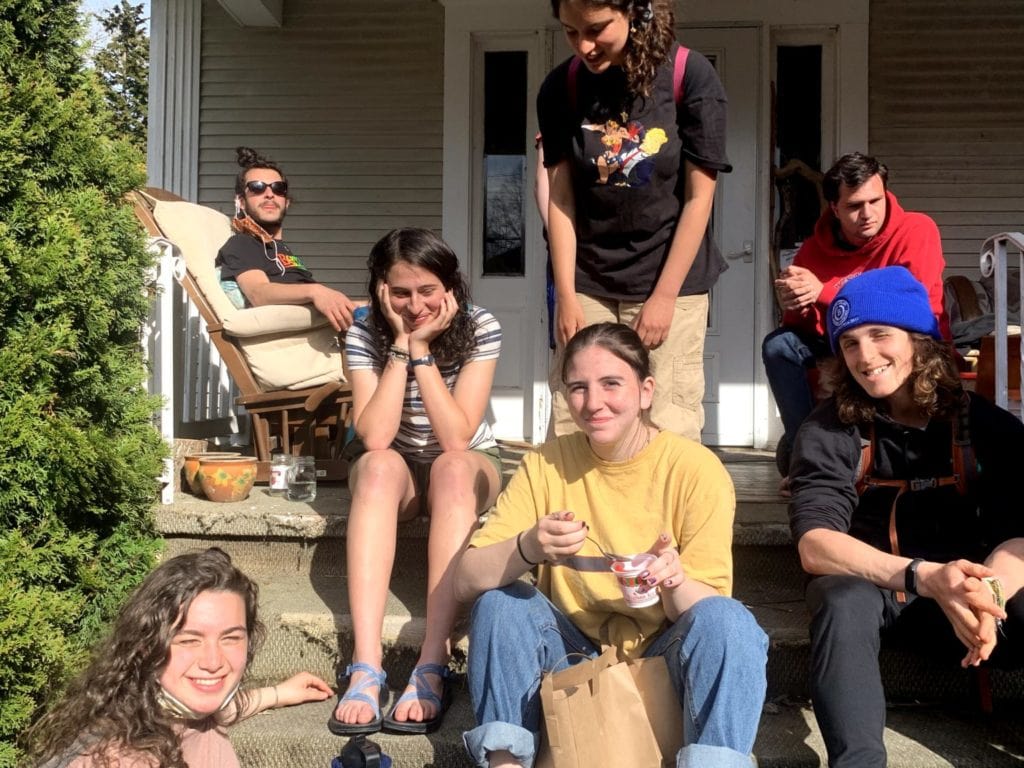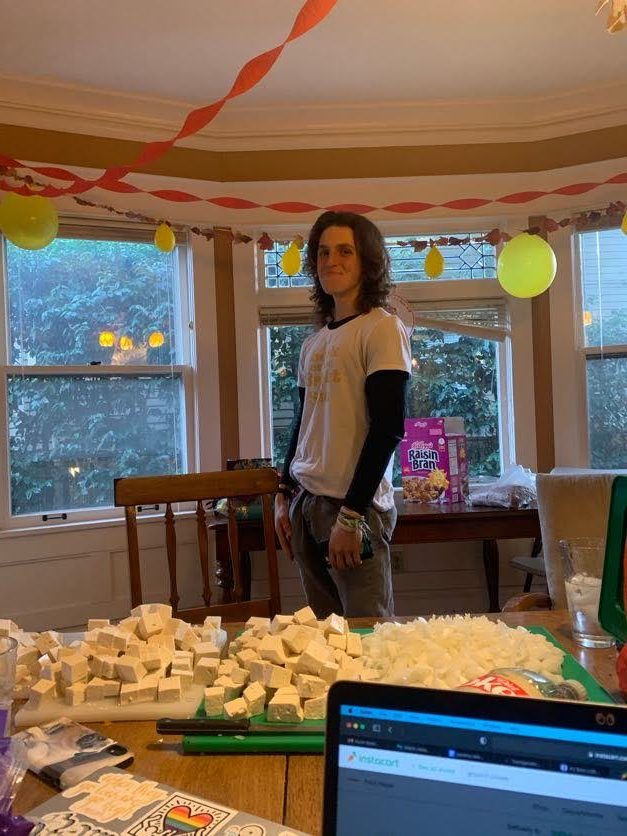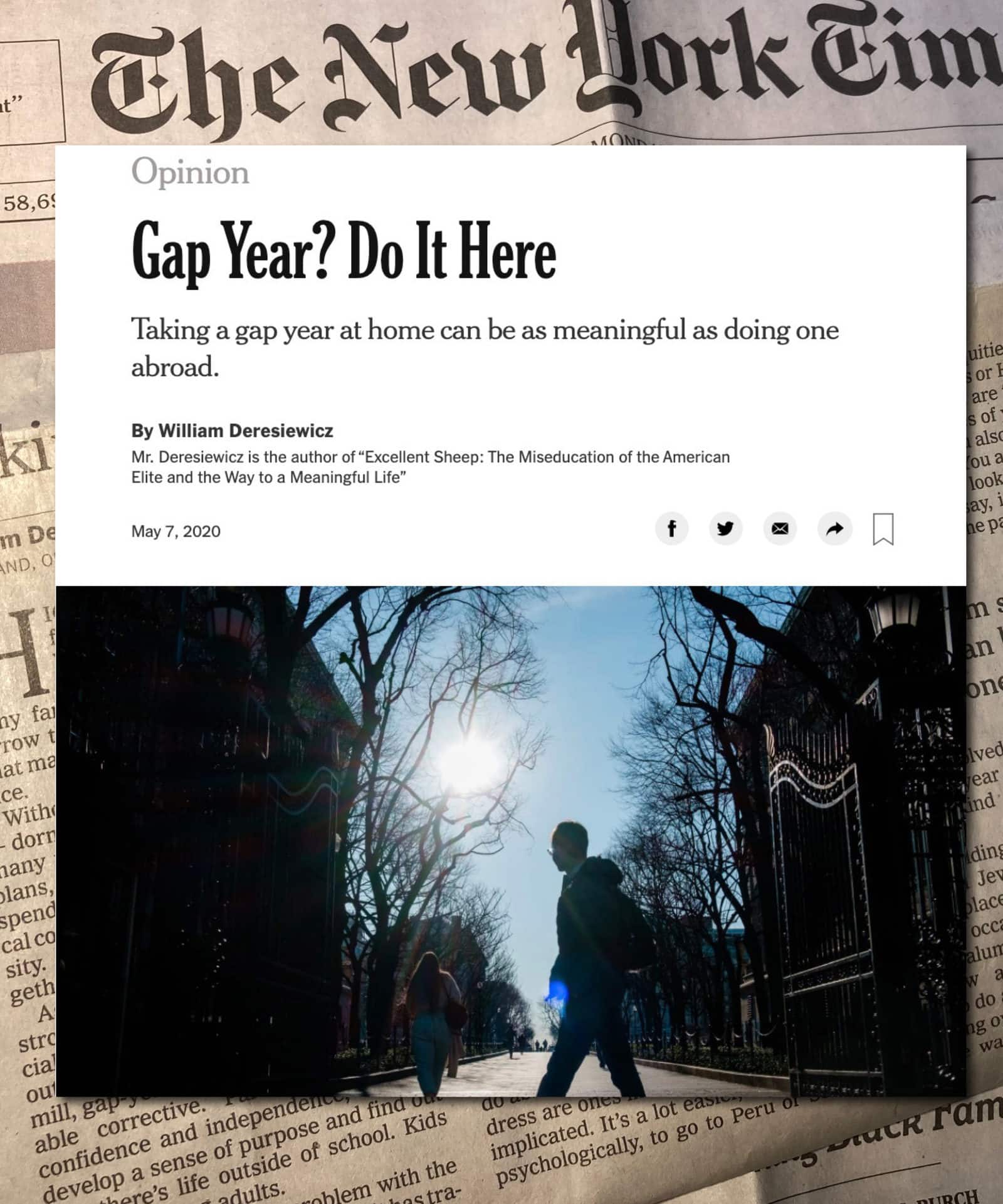This blog post was written by Isaac Levy, a member of the Tivnu 7 cohort, from San Rafael, CA. He loves admiring Portland’s cats, laughing at his own jokes, going on long strolls through the neighborhood, and making random unexpected animal noises. He interns at Tivnu construction and at Latino Network.
As I walked down 13th avenue towards “my” Portland with friends beside me, I grimaced as freezing air battered my unprotected face. While a copious number of layers protected the vast majority of my body, my cheeks and nose loudly protested against the day’s grey coldness. Even after earning straight A’s in all my high school science classes and memorizing material as complex as kelvin conversion to stoichiometric combustion rates, I, a recent NorCal émigré, found that when faced with the reality of “cold” on my cheeks I forgot all, and to my chagrin, asked, “Thirty-six degrees is freezing, right…?”. My friends, turning towards me, stared, laughed, and then finally said “wow you are so from California.”
During the past many months, I have asked numerous questions. Some dumb and some incredibly serious. I have always been deeply curious, rolling questions off my tongue from my first breath. In fact, one of my earliest memories is sitting on a large couch across from a Rabbi and asking him, “why did God give me only one nose but two eyes?” As I have grown older, my questions have grown with me in both scope and complexity, spanning topics from wealth inequality to the existence of God. I believe that society would say that the questions I ask now are more important than those I asked as a child, and until Tivnu I would have agreed with them.
I entered Tivnu expecting to ask the big questions –– “How do we provide universal healthcare?,” “How do we end the homelessness crisis?,” “What can we do to stop police brutality?” While we often do ask these questions at Tivnu, it has not been the big questions but rather the small ones that have impacted me deeply.

Early in the year, I was asked to make myself a list of goals. A simple task, right? Sitting down, I thought for a bit ––about five minutes–– and then quickly generated a list. Later, when talking about my goals with Caryn, one of my RAs, I promptly learned that I had not created a list of goals but rather, a list of categories. My “goals,” like learn about myself and what it means to be an adult, were impossibly open-ended and nebulous. What did I really mean by “become a better person?” Guided by the simplest questions ––how and why–– I wrote a real list, one composed of actionable goals towards which I could truly strive. With clear quantifiable goals, I was able to make “clear” progress, like writing three weekly journal entries to learn about myself, helping at least one person a day with a task unbeneficial to myself, and writing down every week one way in which I was supported like a child and one task I did that felt adult. Over a few months, I began talking less and listening more, asking fewer questions aloud and consequently finding increased value in silence and the questions of others.
After three months of growth, Tivnu took a pause and I went home on winter break. Near the end of winter break, realizing I was about to hit the play button again, I felt confused: what path would my return to Tivnu put me on? I was scared that when I hit resume, I would no longer be able to see the map that had previously been clear in my mind. Feeling frustrated, I looked for solace in journaling, which had become a method of processing for me on Tivnu. I hoped that in my moment of confusion journaling would again clear my mind and give me direction.
Adventuring into the woods of Lucas Valley near my home in San Rafael, I walked between the towering green trees, seeking solace in their cast shadows and wise ancient presence. Sitting, I opened my journal and began to write while listening to the whispers of the trees. After writing down everything on my mind, I began flipping through the pages, looking at my old thoughts. In these old thoughts, I found an answer to my fears. Simply put, goals. Clear, concise, and quantifiable goals allowed me to take huge strides in self-development over my first semester. Returning to Tivnu I re-embarked on my journey of self-growth, guided by a path I had claimed as my own.

Back at Tivnu, I sat in my bedroom and opening my journal for the first time during the new semester, reflected on the differences between the ways I asked questions as a child and as a young adult at Tivnu. Soon, one specific inquiry arose: are goals and questions two entirely different words and subjects? What could goals and questions have to do with each other? Let’s look at what the words mean. A goal can mean a destination, and a question an inquiry. Taking it one step further, a destination can imply a journey and an inquiry, a seeking. Now, taking the two words together, we have seeking and journey. When as a child I asked whimsical and preposterous questions, I do not believe I was truly seeking the answers, but rather a deeper understanding of my world. My questions and curiosity were unrestrained by social norms and logic. They were the pure thoughts and inquiries of a blissfully ignorant child. They were my way of forming my own journey.
As I have grown older, I have often felt that, with age comes responsibility, as well as more freedom and self-determination. While on paper this may be true, in practice it is not. The world I saw when I was five was full of questions and possibilities, while the world I see now is full of people and objects that I unintentionally put into the boxes society has created. As I have begun to think about questions and goals as linked topics, I have slowly been able to re-instill some of my childhood wonder. Tivnu has provided me the opportunity to think outside my boxes and ask crazy and unrealistic questions: to ponder what world peace truly looks like and what a world where all needs are met means. While my questions and dreams may be outlandish, in them I have found little gems, gems in the form of goals. When I asked how we can attain world peace, I was also asking how my house can be more peaceful. The huge questions I was asking were like my original huge goals: they were roadmaps for a multitude of smaller questions, seekings that would and will lead me on many journeys as I attempt to make myself and the world around me a better place.
Slowly opening my eyes, I peered into my dark Tivnu bedroom. Lying in silence, I waited for the darkness around me to form into shadowy shapes. While I was lying silent, the world around me was full of sound, the creak of the floors, the slight rattle of my window, and the steady breath of my roommate. Homing in on my senses and self, I felt a not-usual tug of curiosity. Letting my mind drift, I followed this tug, searched for the question. Creak, rattle, breath. Soon, my mind arrived at its destination. Inside I felt an inquiry, a curiosity I had with my own emotions, a question: what did the noises around me make me feel? Focusing on the discovered question, I tuned inward, listening and feeling both my internal and external worlds. As I lay there, I finally understood. Lying in my bed surrounded by the noises of my house, I felt at home. Closing my eyes again, I drifted back to sleep.

Follow Us
Sign Up For Updates
Taking a gap year in the US can be as meaningful as doing one abroad.
 Featured in The New York Times
Featured in The New York Times